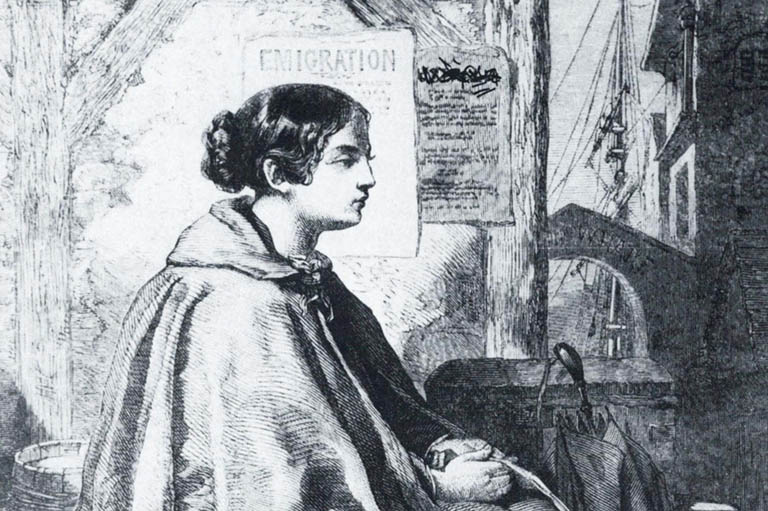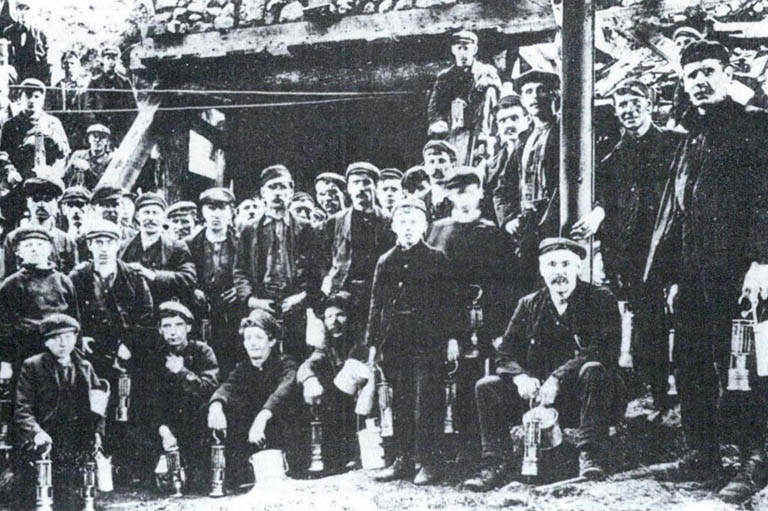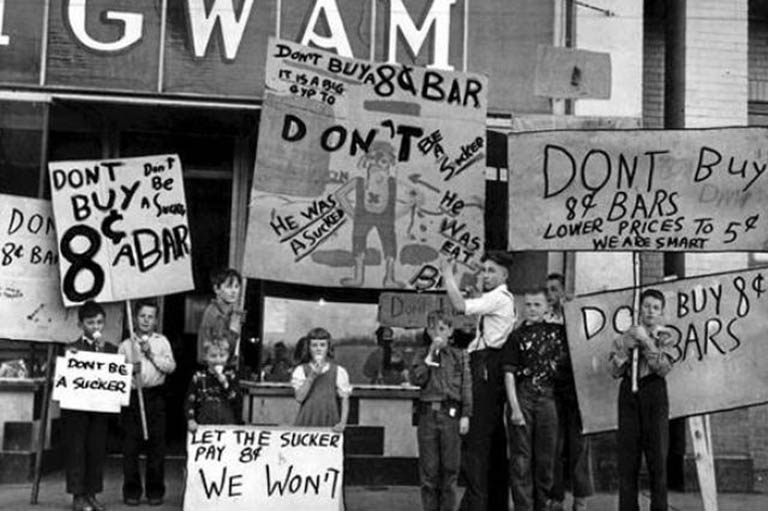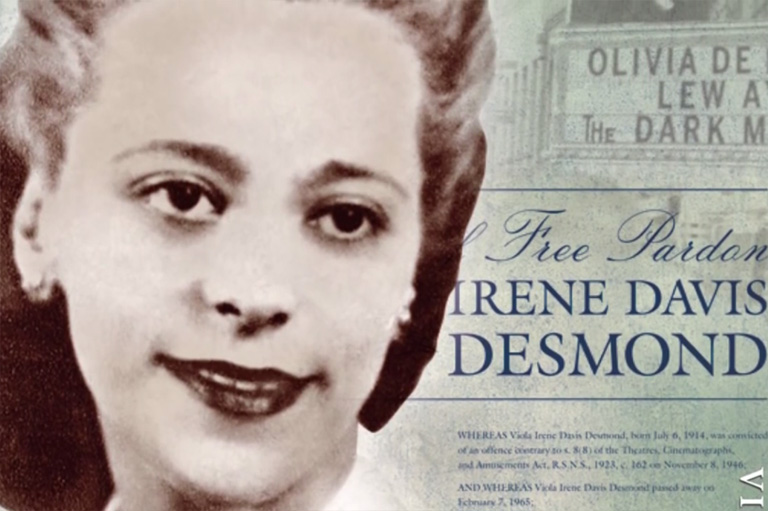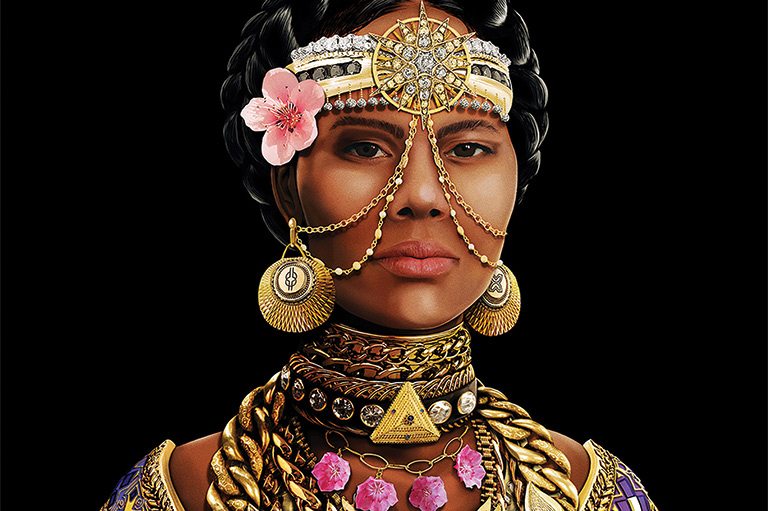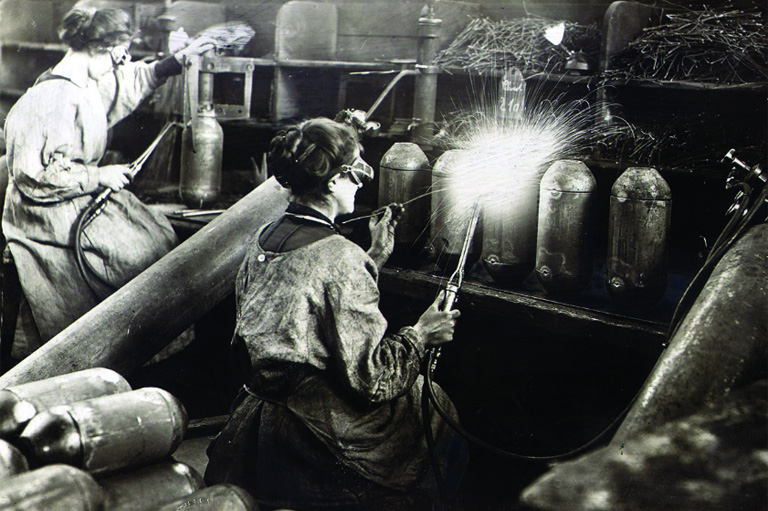Right Honourable Moms
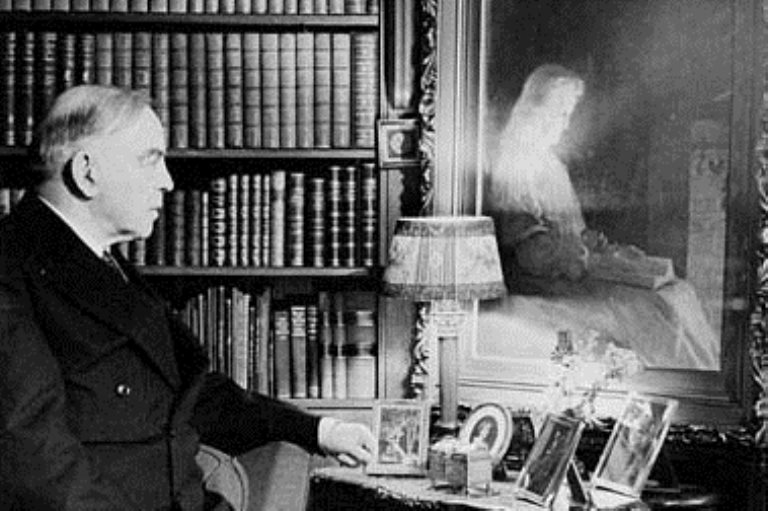
Somebody had to change R.B. Bennett’s diapers. Somebody else, needless to say, had to teach John Diefenbaker his table manners. Someone had to tell Brian Mulroney to clean his room, and, yes, someone had to teach Joe Clark how to walk.
Deep in the obscure margins of Canadian political history are the women who mothered our Right Honourable leaders.
Our popular memory of them is minuscule. Indeed, if it weren’t for Mackenzie King’s strange, vaguely oedipal séances, we’d probably remember nothing at all. But each prime minister had a mom. And this leads to some interesting questions.
What does it mean to have raised a prime minister? How did these women shape the lives and personalities that would ultimately bear the weighty mantle of Canadian federalism? Prime ministers, alter all, are not vested with right-honourable DNA. They are nurtured and cultivated into power. It seems likely, then, that their moms would play a remote but nonetheless influential role in the way Canada has been governed.
Some of the prime-ministerial moms have been more remote than influential, of course. Our more ephemeral leaders, it seems, have had more ephemeral relations with their moms. Tory Joe Clark’s mom was a Liberal. Kim Campbell’s mom, Phyllis Cook, ran away with another man when Kim was only twelve years old.
Some family histories have been marked by tragedy: Wilfrid Laurier watched his mother die of tuberculosis when he was just a boy, and ten of the nineteen Shawinigan babies birthed by Marie Boisvert Chrétien died in infancy.
With 7 uniquely curated newsletters to choose from, we have something for everyone.
The prime-ministerial moms have also offered varying degrees of encouragement to their ambitious offspring. While matriarchal Mother King was pathologically cajoling little Willie, no one had much confidence in young Diefenbaker. One afternoon during his salad days in Prince Albert, Saskatchewan, Diefenbaker announced prophetically that he would one day be prime minister of Canada. But Mama Dief was quick to inform him of the “near-impossibility of anyone’s realizing that ambition … in particular one living far out on the Prairies.”
This naysaying, however, was probably just the type of motivation young Diefenbaker needed—proving the naysayers wrong would be the primary impetus of his career.
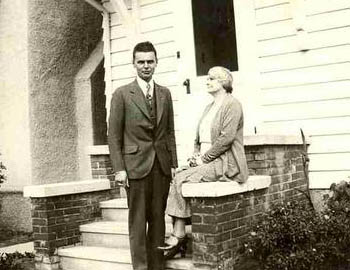
Dief notwithstanding, the four heavyweight champions of twentieth-century Canadian politics all had very special relationships with their moms. Mackenzie King’s ritualistic mother-worship is the stuff of legend, but we could unleash the Freudian hounds on Trudeau and Bennett just as easily.
Brian Mulroney, too, was close to his mom. Leafing through their prime-ministerial memoirs, biographies, and partisan profiles, it becomes clear that these leaders were fundamentally shaped—in character, in ambition, and in many cases, in political vision—by the women who raised them. These women left their mark on our country.
This is particularly true of Grace Elliott. Grace Elliott, of course, was the “Elliott” in Pierre Elliott Trudeau. More than the Anglo part of his name, she was the Anglo pole of his identity—an identity that Trudeau would, at times, be compelled to defend.
During the 1980 Quebec referendum campaign, René Lévesque sneered that Trudeau’s political ravings sounded more “Elliott” than “Trudeau,” more anglophone than francophone, more Canadian than Québécois. Trudeau always brandished such definitions of Canadian identity, just as he would in his famous referendum retort in the Paul Sauvé Arena in May 1980.
Thrashing Lévesques remark, Trudeau exclaimed that “Elliott,” his mothers name, was both Québécois and Canadian. Indeed, Trudeau’s particular vision of Canadian duality, the central theme of his political career, has its historic roots in the world of Grace Elliott.
Canadian duality was a lived reality for Grace, just as it would be for her son. Her father was an anglophone Protestant, her mother a francophone Catholic. Growing up in Montreal, Grace was raised Catholic while her two brothers were raised Protestant.
This arrangement was typical of mixed-marriage families in nineteenth-century Quebec, steeping Grace’s life in a veritable hybrid of the two distinct cultural traditions. In her married life with Charlie Trudeau, a robust francophone entrepreneur, this duality persisted. Living in a bilingual household, Pierre Trudeau spoke to his mother in English and his father in French and absorbed their differing cultural sensibilities.
When Charlie Trudeau died, Pierre was fifteen years old, and the cultural polarity of his household was thrown off, leaning to his mother’s side. “When my father was around” Trudeau once recalled, “there was a great deal of effusiveness and laughter and kissing and hugging. But after he died, it was a little bit more the English mores which took over.”
Indeed, some political biographers have argued that it was from Grace that Trudeau developed his contempt for emotionalism. This puritan resolve would follow Trudeau, in various permutations, throughout his political career, particularly in his icy rejection of nationalist appeals. It is in Grace Elliott, thus, that we find the genesis of Pierre Elliott’s personal motto, and very much the soul of his political vision: la raison avant la passion (reason before passion).
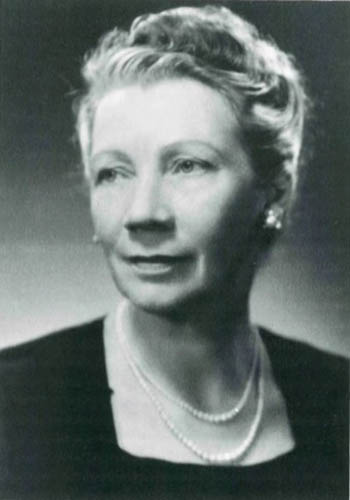
Certain observant Trudeau-watchers have argued that Trudeau had a “mother complex” just like Mackenzie King. Mother Trudeau was nothing like Mother King, mind you—she was not the domineering sort—but it is true that Trudeau adored her profoundly. When his father died. Trudeau effectively assumed his father’s role as both household administrator and life partner to Grace. He lived at his mother’s Outremont nest right up until his departure for Ottawa at age forty-six. He was a doting and attentive son—handling Grace’s affairs, escorting her to parties and concerts, vacationing with her abroad.
Given Trudeau’s popular image as a sashaying Don Juan of much repute, it is perhaps hard to believe that he was such a mama’s boy. But a few pages of Jungian psychology will tell you that it is precisely this mother complex that leads to Don-Juanism. A son’s relationship with his mother is so close and adoring that she becomes his image of female perfection.
Accordingly, as Stephen Clarkson and Christina McCall argue in Trudeau and Our Times, the many women that Trudeau wined and dined would always fall short of the perfection he saw manifest in his mother, leading to an adolescent cycle of womanizing. Thus, as the argument goes, the image of Trudeau-as-international-playboy that captured the Canadian imagination for so many years was the psychological byproduct of Trudeau-as-overzealous-son.
In poring over the analytic minutiae of Trudeaumania, it becomes clear that Grace Elliott’s influence was great. In various ways she was very much at the root of what compelled us about Trudeau: the image, the disciplined rational intellect, the idealistic embodiment of Canadian duality, the visionary possibilities for Canadian politics, which compel us still today.
Now, Pierre Elliott Trudeau and Brian Mulroney have said many unflattering things about each other—but neither one could accuse the other of being a bad son. Mulroney was not born into wealth like Trudeau, and his filial responsibilities were far more serious. Indeed, the strain of Mulroney’s obligations to his mother, Irene O’Shea Mulroney, would reverberate along the trajectory of his ambitious political career.
In Mulroney’s campaign during the 1976 leadership convention (which he would lose to Joe Clark) his long-time friend Lowell Murray said that Mulroney didn’t have Tory leadership in him yet. Brian had never even had a seat in Parliament, Murray explained, let alone “addressed the larger questions about the country that any leader has to consider.”
“‘What Lowell forgets,’” said an inflamed Mulroney in an interview with Stephen Clarkson, “‘is that I’ve had to work all my life. I had to support my mother and my sisters after my dad died while those buggers’—and here his voice would change from its normal baritone to a mocking squeak—‘were considering the larger questions!’”
Implicit in Mulroney’s indignation is an evident pride in the sacrifices he made for his mother, and an insistence that such sacrifices were important for him to make. It is perhaps these sacrifices that give real meaning to Mulroney’s self-proclaimed moniker, “The Boy from Baie Comeau.”
Irene O’Shea grew up in the Irish Catholic village of Shannon, Quebec. She was a quiet, devoutly religious woman, who was known to whisper a short prayer whenever something went wrong. Married at an early age, she followed her husband, an anglo-Catholic electrician, Benedict Mulroney, north into what was to become one of the darkest outposts of Duplessiste noir-ceur, the company town of Baie Comeau. It was here in the black-fly-infested backwoods that baby Brian came abouncing in 1939, to be followed by five more, all of whom Irene would feed and clothe on Benedict’s meagre salary.
Their poverty notwithstanding, payday was “steak night” in the Mulroney house, for which Irene kept a very tight grip on the family purse strings. When young Brian (a fervent Bing Crosby fan from an early age) was given a weighty fifty dollars for serenading the American pulp-and-papcr baron that owned Baie Comeau with that quintessential Mulroney-era love song, “When Irish Eyes Are Smiling,” the young crooner handed over the cash straightaway to Irene. The steak would be served, and Brian would go to university.
Mulroney had just graduated from law school and was introducing Montreal to some of his notorious Baie-Comeau-bred machismo when his life was suddenly thrown off kilter. Benedict Mulroney died in 1965, leaving Irene with only a tiny insurance payment and his eldest son with a lot of responsibilities.
Distressed by his father’s death and under the gun to provide for his family, the overwhelmed Mulroney failed his Quebec Bar exams on his first attempt. He moved his mother and sisters to live with him in the big city. Before very long he was sustaining them on his junior partner’s salary at a Montreal law firm. There is no account of Mulroney harbouring any resentment for being left with these responsibilities. To the contrary, he accepted his weighty burden nobly and dutifully.
He is said to have been very close to his mom, sharing everything with her—although one time a mortified Irene accidentally walked in on the swinging Mulroney with a young starlet from the Dean Martin Show in a state of undress. “She should have known better than to come over without warning,” Mulroney later shrugged.
Mulroney didn’t have a mother complex, but his relationship with his mom was an integral part of the shape and character of his career. He made important sacrifices for her, both financial and professional. These sacrifices meant that the “larger questions,” brooded upon so gratuitously by spoiled rich kids like Pierre Trudeau and Lowell Murray, would sometimes have to sit on the back burner.
But his devotion to Irene, in spite of his ferocious ambition, also deepens our understanding of Mulroney as the first Canadian prime minister to come from a working-class background and the significance of that achievement. Mother Mulroney was there to remind Brian that you can take the boy out of Baie Comeau, but you can’t take Baie Comeau out of the boy.
One of Mulroney’s Conservative forefathers, the Great Depression dynamo, R.B. Bennett, had this to say about his mom: “She was I suppose the mainspring of my life. It was my ambition and joy to please her; to have her see that the care and effort she bestowed on me were not in vain.”
Henrietta Stiles married Henry Bennett in New Brunswick in 1869. She gave birth to Richard Bedford Bennett quite abruptly and unexpectedly at a Sunday tea party in 1870. Henrietta and young Dick were very close, and she proved to be a fiercely ambitious mother, as James H. Gray noted in R.B. Bennett: The Calgary Years.
Save as much as 40% off the cover price! 4 issues per year as low as $29.95. Available in print and digital. Tariff-exempt!
When Dick Bennett’s elementary-school principal announced a punctuality, deportment, and diligence competition, young Dick and childhood rival Carrie Reid, both of them ferociously well-behaved, entered the ring as the prime contenders. After weeks of breakneck one-upmanship, the prize went to Reid, and Mrs. Bennett was mad. Storming down to the schoolmasters office, Henrietta protested that Carrie Reid had fainted in class one morning in midcompetition and had to be carted home.
Clearly then, Reid’s enfeebled lapse had blemished her attendance record, thereby propelling the more robust R.B. up to his rightful rank amid the lofty summits of human punctuality. The prize was Dick’s! The schoolmaster considered Mrs. Bennetts argument and verified the attendance record. He found, however, that Reid had returned to school after the lunch hour. Thus, the girl would keep her award, and Mrs. Bennett would swallow her pride.
James H. Gray has argued that Bennett’s politics only become “explicable [by] recalling the lessons he learned on his mother’s knee.” Indeed, Bennett the man and the politician were both heavily steeped in Henrietta’s many teachings. Bennett himself once credited his mom with inspiring in him his “love of our great empire.” She regaled him with heroic tales of his great-grandfather, Captain Nathan Stiles, who served the imperial armies at Louisbourg and at Quebec in 1759.
These stories ignited something in Bennett, for imperialism was to be the molten fire of his politics. He rallied feverishly on imperial affairs, advocating imperial free trade as opposed to tariff liberalization with the American menace. Michael Bliss has even described Bennett as “the most British of Canada’s British Conservatives.” In this respect perhaps most of all, Bennett’s Canada was very much his mom’s Canada.
William Lyon Mackenzie King is perhaps better known for being a pathological mama’s boy than for his political legacy.
Henrietta’s religious thought was also at the heart of the Bennett government. Henrietta simmered Bennett’s formative years in the tenets of Wesleyan Methodism: Sloth was a cardinal sin; one must strive for sobriety, thrift, industry, generosity, and, above all, the virtue of honest work. These themes would guide Bennett throughout his illustrious, ambitious life.
If ever you were to invite Bennett to a wine-and-cheese party, he would hover by the cheese table, gloating, as he often did, “I promised my mother I would never drink, and I never have.”
Bennett’s interpretation of the sanctity of the work ethic, furthermore, explains his initial queasiness about implementing unemployment insurance as prime minister during the Depression, and his preference for relief camps and work programs over social assistance. And Henrietta had taught him to be generous, too. Many of the destitute families that wrote letters to the prime minister in desperation received a personal cheque from Bennett in reply.
Indeed, Henrietta’s presence can be felt at the thematic roots of Bennett’s politics. She was the very soul of Bennett as a professional and personal man, and, like King, he remained a bachelor. It was with deeply felt sincerity that Bennett once said of his mother, “All that I am or may be I owe … to her.”
But as much as Bennett’s mom may have marked Canadian politics during his years as prime minister, it was the man who sat opposite Bennett in the House of Commons who had the mother of all prime-ministerial mothers.
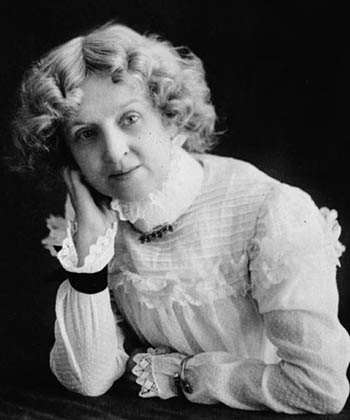
William Lyon Mackenzie King is perhaps better known for being a pathological mama’s boy than for his political legacy. Since the publication of his mammoth diaries in the 1950s, Canadians have spent a great deal of time speculating about the possibility of King’s oedipal dysfunction and ridiculing his weird mingling with matriarchal ghosts. This historical pastime reached its zenith in C.P. Stacey’s mean-spirited biography of King’s private world, A Very Double Life.
Recent scholarship, however, has been kinder to King, rationalizing his eccentricity and trying to understand it. And it cannot be denied that a woman so central to King’s being somehow affected Canadian politics throughout her son’s twenty-two years in office.
The youngest daughter of rebellious Upper Canadian firebrand, William Lyon Mackenzie, Isabel Grace Mackenzie was born into poverty in New York in 1843, in the midst of her father’s political exile. Although the hot blood of Mackenzie was said to pump in Isabel’s veins, she married John King, a somewhat bookish Ontario lawyer with a genteel veneer. They were well off, but not rich enough for stuffy nineteenth-century Toronto.
Isabel would spend much of her married life straining to masquerade as upper middle class. To this end, she invested enormous energy in the meticulous cultivation of her first-born son, whom she named, tellingly, after her illustrious father. Charlotte Gray, in Mrs. King: The Life and Times of Isabel Mackenzie King, argues that Isabel saw in young Willie an unusual power, which, if properly guided, could bring to her family the financial and social security she sought. Willie was to be the saviour.
Without a doubt, Willie King developed a mother complex. He never married. His mother remained the only woman in his life. He was an eligible bachelor, but no woman he courted was as fine as Isabel, despite his hapless searching: “If I can only win such a wife as I have such a mother, how infinitely happy!” King wrote in his journal.
It is well known, of course, that their relationship was unusually intense. Romantic images of Willie and Isabel along pastoral walks at Kingsmere line the King photo albums. On her seventy-fourth birthday, King, always reverent of the mystical power of numbers, kissed Isabel an astounding seventy-four limes in a row.
After Isabel died in 1917, the insecure King would infamously begin experimenting with spirit mediums, appealing to Isabel for personal and political guidance from the Great Beyond. This maternal poltergeist of Canadian politics hovered over King’s entire career as prime minister. In a séance conducted in London in 1948, when King was suffering illness, mother King and the ghost of former American president Franklin Delano Roosevelt (“Frank” as Isabel called him) assured King that it was time to retire, and he promptly followed their advice.
Why was King so attached to his mom? Simply, King was an intensely self-doubting man whose professional ambitions relied on motherly incubation for strength and confidence. Charlotte Gray argues that Willie was “fiercely ambitious, hopelessly sentimental and constantly in need of reassurance [and he] blossomed in the warmth of [Isabel’s] love … it allowed him to measure his actions in terms of her approval.” In essence, Isabel was the emotional powerhouse, the life partner, that shaped and propelled King, both as a man, and as a professional.
Not unlike Henrietta Bennett, Isabel also inspired King with the stories of his political lineage. C.P. Stacey has suggested that, in a metaphysical way, which we know had great meaning for King, Isabel was the very source of his political vision. As the genetic link to his grandfather the rebel, Isabel, King believed, was the mystic transmitter of an unfinished political legacy that he had the duty to carry on.
Much of this transmission, surely, came from Isabel’s deliberate political coaching before she died in 1917. Shortly after becoming a member of the House of Commons, the novice Grit told Sir Wilfrid Laurier all about his mom. He told Laurier of “inheriting through her a hatred of injustice and love for the poor, & a determination to vindicate the justice of the cause Grandfather contended for.”
And indeed, a major thread in King’s political legacy, from his very beginnings in Ottawa as editor of the Labour Gazette right up to the postwar welfare state, was his consistent effort to be an ally to working people and bring humanity to industrial capitalism. In both symbolism and in real tangible guidance, Isabel inspired and channelled King’s political destiny.
Mother King, like Mothers Bennett, Mulroney, and Trudeau, among others, have clearly left their mark upon Canada. All their hand wringing has served the country well. By fundamentally shaping the lives of the individuals who have led us, they have helped shape the country and how we think of it.
Canada would indeed be a different place were it not for Grace Trudeau’s duality or Isabel King’s ambition or Irene Mulroney’s budgeting skills. In the continuing saga of the Canadian political tradition, then, and on Mother’s Day, we would do well to rightly honour our Right Honourable moms.
If you believe that stories of women’s history should be more widely known, help us do more.
Your donation of $10, $25, or whatever amount you like, will allow Canada’s History to share women’s stories with readers of all ages, ensuring the widest possible audience can access these stories for free.
Any amount helps, or better yet, start a monthly donation today. Your support makes all the difference. Thank you!
Et cetera
R.B. Bennett: The Calgary Years by James H. Gray. University of Toronto Press, Toronto, 1991.
Mrs. King: The Life and Times of Isabel Mackenzie King by Charlotte Gray. Viking, Toronto, 1997.
A Very Double Life: The Private World of Mackenzie King by C.P. Stacey. Macmillan .Toronto, 1976.
Trudeau and Our Times, 2 vols., by Stephen Clarkson and Christina McCall. McClelland and Stewart, Toronto, 1990,1994.
Mulroney: The Politics of Ambition by John Sawatsky. Macfarlane, Walter & Ross, Toronto, 1991.
Themes associated with this article
Advertisement
Related reading
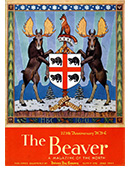
Canada’s History Archive, featuring The Beaver, is now available for your browsing and searching pleasure!

